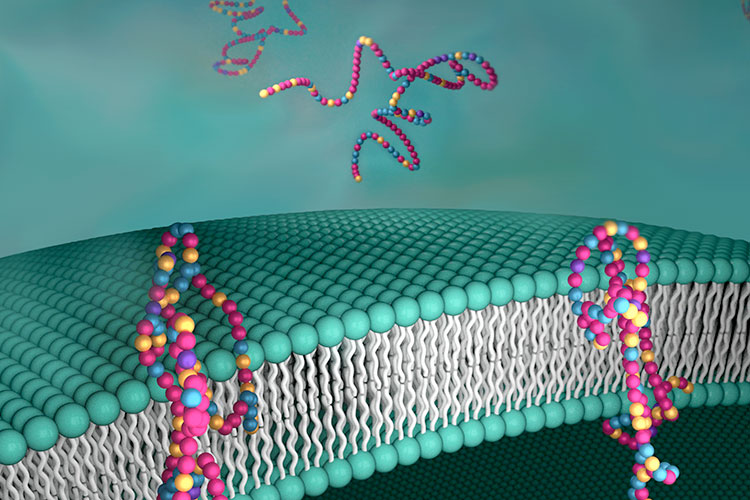Lab-made proteins mimic cellular gatekeepers

The walls of our cells are pockmarked with special “transmembrane” proteins that, like bouncers at a bar, are designed to let good molecules in and keep bad ones out. These proteins act like channels, connecting the inside of the cell to its surroundings and helping it maintain healthy pH and nutrient levels.
In a study published this week in the journal Nature, engineers at UC Berkeley and their collaborators describe the first lab-made versions of gatekeeper proteins that filter good from bad just as well as the real thing — and which could be used to enhance the function of synthetic membranes used in water desalination, energy storage or biofuels research.
The lab-made polymer selectively transports protons — charged subatomic particles that determine a liquid’s acidity — across an acrylic film at a rate similar to those of natural proton channels, while successfully filtering out other types of cations, or positively charged ions.
“If we think of the polymer as a doorway, it had to be open wide enough for the proton to go through, but not so open that other cations can sneak in,” said study principal investigator Ting Xu, a Berkeley professor of materials science and engineering and of chemistry. “We were able to find that right balance with our material.”